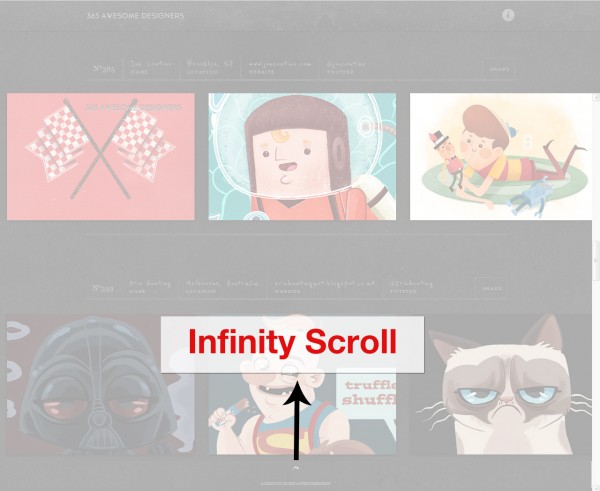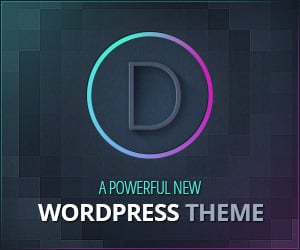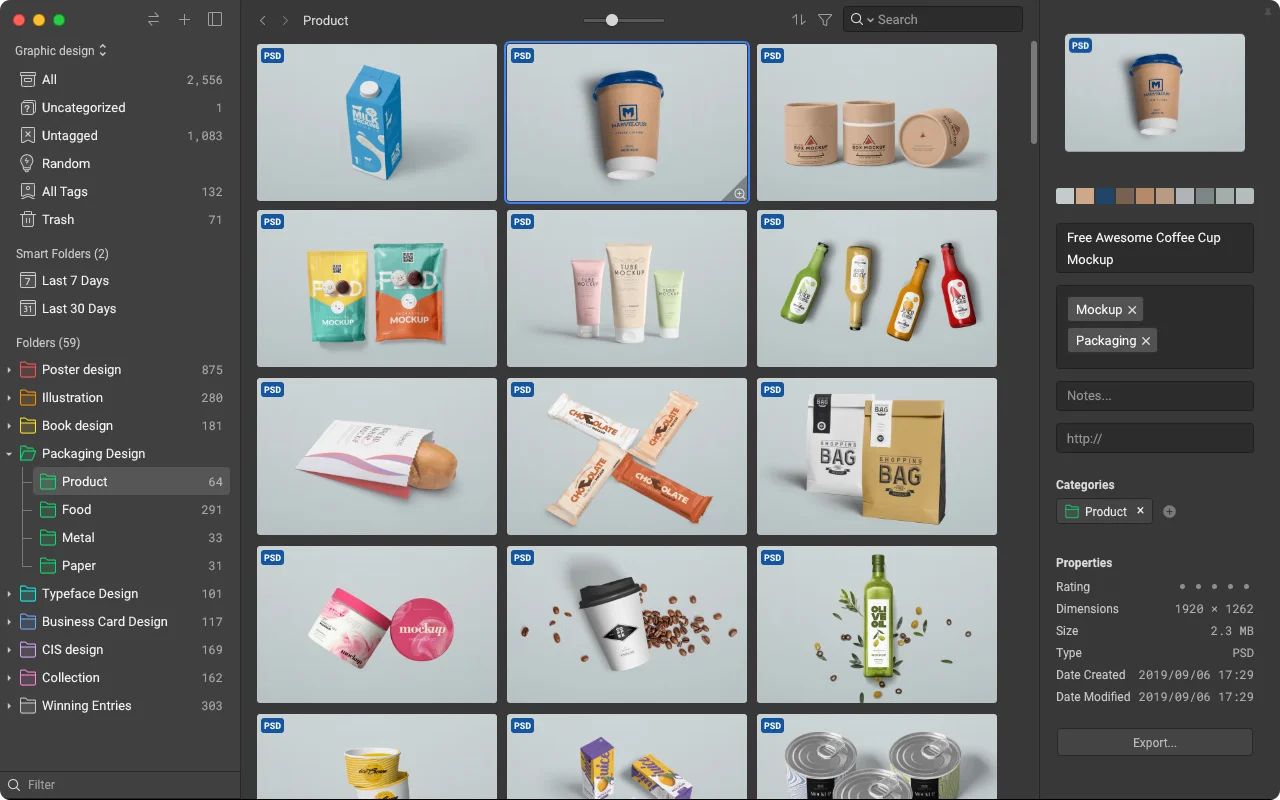At Google, it’s called continuous scrolling and may also be called countless scrolling. Endless scrolling is just an approach to really make the visitor automatically fill new material when an individual reaches the bottom of the site such that it isn’t required to find pagination links to visit a next portion; the whole lot will move by simply moving the mouse wheel. That approach is particularly found in the headlines on Facebook, the pictures on Google and the timeline of Twitter. It clearly was created to provide a large amount of knowledge in one view to an individual before he’d visit a subsequent area, and it was initially called the scrolling grid.

The content in this post involves advantages and drawbacks of unlimited scroll. By the middle of 2008, the word endless search had a unique presence and a website with exactly the same name specialized in describing at length how it works. The website also provided constant scrolling on WordPress subjects, pages via JQuery libraries and “autopagerize” add-ons for Safari and Google Chrome. Even in 2012 the approach continued to show creativity combined with the implementation of responsive design. In the end, the idea of a website comes specifically from papers, publications, and actual report pages.
Loopholes of Continuous Scrolling
The finest businesses are continuously testing and making a study of new users making use of their connections. Various reports have stated that endless scrolling doesn’t go well with people it does not fulfill their objective of the website.
Mere Temptation
When you search for the outcome of great research and are influenced to keep on scrolling straight into a wasteland of unrelated effects, time gets wasted. Then the most helpful effects can be seen in the first 10 items. Endless scrolling is therefore simply a temptation to for you to keep on examining, wasting time and lessening production in the bargain.
Optimistic Objective
More annoying is the fact that search bars don’t display the certain kind of knowledge available. You’ll scroll down thinking that you’re close to the base, and this alone convinces you to search some more, only to discover that the results have doubled by the time you reach there.
Dull Task
Unlimited scrolling overwhelms people with incentive. It’s like having fun at a casino game in which you will never gain. No matter how much you seek, you’ll feel that you may not ever reach the end. The combination of temptation and anticipation plays a big role in tiring out the user.
User Gets Lost
Unlimited scrolling normally takes you to a place on the site where you are lost. This “Pogosticking” happens when you press from a definitive scrolling number and when you reunite by pressing “Straight back,” are taken to the top of the prior site, instead of the level where you were. That happens since the search spot is missing when you steer from a definite scrolling site, making you to search back each time.
Getting a Grip on It
Unlimited scrolling makes you feel that you are missing information. You have kept on scrolling for the answers are there, but you feel overrun for you are not getting a grip on the total amount of knowledge being shown. There’s nothing great about defining pages where the total amount of material is quantified, where you are able to decide if you have to press to see more or even to stop. When you’re not getting a grip on the total amount of knowledge on the site it becomes overwhelming.
A Diversion
E-commerce marketplace Etsy made use of endless scrolling, only to get lesser clicks from users. Unlimited scrolling was lost since people could not find missing info and had trouble recognizing between applicable and irrelevant information. While endless scrolling offered faster and more effects, people were less willing to select them, defeating their real purpose.
Could Be Unreachable
Maybe you have attempted to get to the base of Facebook recently? The footer stop exists under the headlines given, but since the five scrolls are needed, more knowledge gets packed the moment you get underneath, driving the footer out of the scene every time. Footers occur for they include material that an individual occasionally needs. In Facebook’s situation, an individual cannot achieve it. The hyperlinks are recurring elsewhere but are tougher to find.
Unlimited scrolling impedes an individual by creating important info inaccessible. Footers offer a last resort. If people cannot discover anything or they’ve issues or need more info or description, they usually move there. If they don’t really think it is there, they may quit the website altogether. Firms that apply endless scrolling must make the footer available which makes it sticky, or shift the hyperlinks to a sidebar.
Lacks Exclusivity
Pinterest does not need footer at all. Through endless scrolling, Pinterest stresses their provision of knowledge, and countless oceans of creativity obtained from the entire Web. Photos are quicker and simpler to search than text, therefore Pinterest and Bing Photos succeed with endless scrolling to an extent. Nevertheless, billions of images are on the Internet, and people would rather see just the most effective of them. There’s much to be claimed for exclusivity, which appears to be in Pinterest’s layout.
Advantages
Significantly, more than being only an expensive function, endless scrolling has different benefits making it useful at times:
- The uninterrupted interest a consumer retains when more material is offered immediately is the key of the attractiveness of endless scrolling. The audience won’t have to think much where to obtain the next switch or which amount of pages must come, leading to better attention.
- In emotional phrases, endless scrolling generally seems to induce automated reactions centered on awareness and the alleviation of the hope made while looking forward to new data, that causes some sort of pleasure and readiness to carry on scrolling to see what comes up. That emotional process justifies adequate awareness as the original gain may develop into a problem.
- Design models may gain with a solution, more space for material and less unproductive aspects such as the list of figures for paging.
Disadvantages
Needless to say, there are also several problems with endless scrolling:
- Site filling time increased: It’s evident that the excess material to be appended at the end of a full page requires more time to be downloaded. People with dial-up associations or bad cellular knowledge programs may have a low power to surf successfully that page.
- Storage application: Windows and PCs in addition to mobile phones as well as tablets, could possibly lose all memory and crash, particularly if the site accommodates a great deal of images. The improved filling time along with more process storage expected and model application can undoubtedly bring about uneven, jumpy and uncomfortable navigation.
- Visitor compatibility: Because endless scrolling is in the region of responsive design, it is dependent on libraries and jacks that may not be completely suitable for older units.
- Viewing the footer vanish and struggling to achieve can be quite a “traumatizing” experience for the user. Also, the footer’s content and the footer itself can vanish.
- Not enough direction and spatial guide: In a paginated system consumer may set a straightforward visible reference to orient them through the page’s content and mark areas where they find something interesting, and they can thus return quickly there. There might be consumers who sense something’s missing or are puzzled and unsure whether they are or what they want. Considering that endless scrolling seeks to show big levels of records, it ought to be applied also to obtain the specific place in the list, in order to avoid annoying situations. Most protests against countless pages are made with regard to those two last factors since the consumers were losing control of the page.
- Bookmarks are generally worthless because a place of interest will not be noted on a distinct site but suspended somewhere in the movement of entries.
- The rankings could differ significantly on the research pages for the benefits restricted after page 2 will be seen on page 1 by simply scrolling down enough.
Conclusion
This is exactly why, despite their large acceptance, endless pages aren’t generally the most effective selection for every website as well as for the same website seen on various devices.
Alan Smith is an avid tech blogger with vast experience in various IT domains, currently associated with SPINX Inc., a Los Angeles based company of expert Web Designers. Follow Alan on Google + and Twitter.












Add Comment